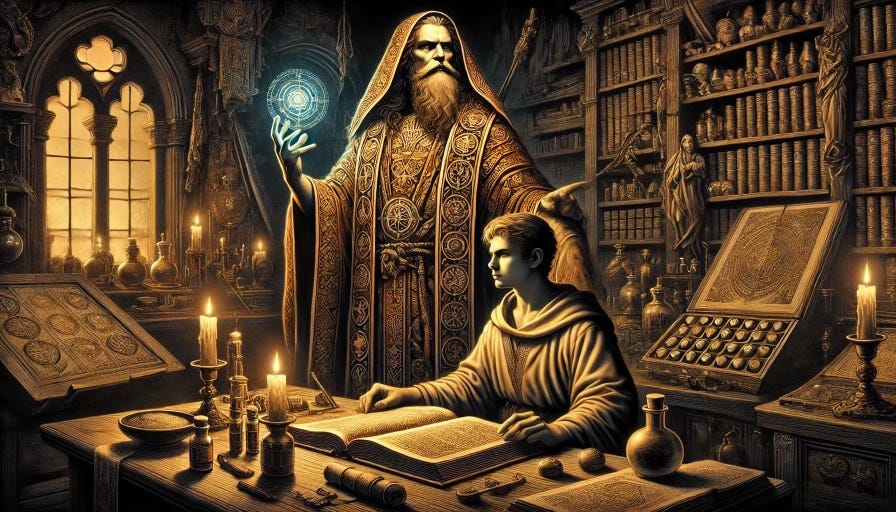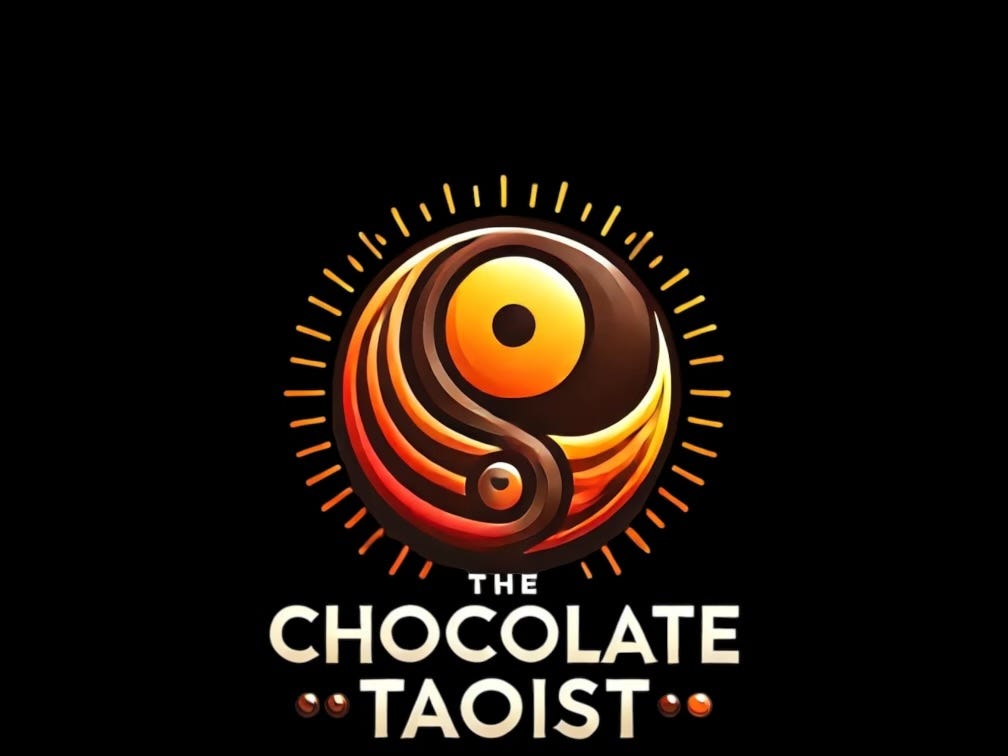The Tao of Finding Your Muse
Why Chasing Inspiration is the Path of Least Resistance
You are invited to become a member supporter of “The Chocolate Taoist”
At $6.00/month or $60.00 year, your funds will help me sustain this labor of love and continue to deliver nuggets of chocolate wisdom to you.
Thank you!
Diamond-Michael Scott
aka The Chocolate Taoist
Throughout history, the concept of a Muse has been both revered and misunderstood, embodying a mysterious source of inspiration that propels individuals into new realms of creativity, wisdom, and achievement.
To some, the Muse is a personification of the Divine, whispering secrets of the universe into the ears of the receptive. To others, it is a distraction, a seductive siren pulling the unwitting artist or thinker away from the shores of reason and into the swirling depths of obsession.
Yet, there is a contrarian argument to be made…..…..…
…….that the Muse is neither a guiding angel nor a deceptive spirit, but rather a manifestation of one’s deepest longing to transcend the mundane and engage with the ineffable.
Defining the Muse: A Dance with the Infinite
In its simplest form, a Muse can be seen as an external or internal entity that sparks creative fervor. It is the presence that lights the fire of a poet’s verse, the vision that guides the painter’s brush, and the philosophy that underpins a thinker’s legacy.
But what is the nature of this presence? Is it a person, an idea, or something more elusive? In the ancient world, the Greeks revered the Muses as goddesses who presided over the arts and sciences. Each Muse was a symbol of a particular discipline, embodying the essence of creativity in its purest form.
Yet, the Muse is not bound by these mythological origins. It can be a person—think of Dante Alighieri’s Beatrice, whose mere existence transformed his poetry into divine revelation. It can also be an idea, like the ideals of Romanticism that stirred the hearts of poets like Byron and Shelley.
For historical figures, the Muse has often been the catalyst for greatness. Consider Leonardo da Vinci, whose insatiable curiosity and visionary ideas were driven by a relentless pursuit of understanding nature’s secrets. Was his Muse the enigmatic smile of the Mona Lisa, or the intricate patterns of bird flight that he so meticulously studied?
For Sigmund Freud, the Muse was the hidden depths of the human psyche, a dark and unfathomable realm that he sought to bring into the light of understanding.
Today, Ryan Holiday, the modern popularizer of Stoicism, the Muse is the ancient wisdom of Epictetus, Marcus Aurelius, and Seneca—voices from the past that have found new resonance in our uncertain times.
Ryan Holiday
My Personal Muse: Seeking the Taoist Parallel
In my own journey, I have often looked to Ryan Holiday as a modern-day Muse. His ability to distill the teachings of Stoicism into practical guidance for a chaotic world is nothing short of alchemy.
What Ryan is to Stoicism is what I wish to be for Taoism—a conduit through which an ancient philosophy can find new life and relevance. His books, podcasts, and writings serve as a reminder that timeless wisdom can be a bulwark against the tempests of modern existence.
All of this leads me to a question. How does one emulate a Muse without falling into mere imitation?
Here, Taoist philosophy offers a unique perspective. In Taoism, the concept of Wu Wei—often translated as “non-action” or “effortless action”—teaches that the most profound influence comes not from forceful striving but from harmonious alignment with the natural flow of things.
A Muse, then, is not something to be sought or clung to, but rather something to be encountered in the stillness of one’s own being. Just as water does not seek the path down the mountain but effortlessly follows it, so too must the aspirant to Taoist wisdom allow the Muse to arise spontaneously, without desire or expectation.
The Alchemical Metaphor: Turning Lead into Gold
The relationship with a Muse can be likened to the alchemical process of turning lead into gold. The lead is the raw, unformed potential within oneself—a mass of ideas, emotions, and experiences that, in their unrefined state, are heavy and inert.
The Muse, like the Philosopher’s Stone, has the power to transmute this base matter into something radiant and valuable. Yet, this transformation requires more than mere inspiration. It demands a deep inner alchemy—a refinement of one’s own being to become a vessel capable of receiving the Muse’s gifts.
From a Taoist standpoint, this process is not about imposing order on chaos but about embracing the paradoxes inherent in life. The Tao Te Ching speaks of the value of emptiness—the usefulness of a pot lies in its empty space, not its clay form.
Similarly, the Muse is most potent when it occupies the empty space within us, the space that we have cleared of preconceived notions and rigid ambitions. It is in this space of receptive emptiness that the Muse can work its magic, turning the lead of our unshaped potential into the gold of realized purpose.
The Muse and the Sage: A Harmonious Union
In the end, the Muse is neither master nor servant but a companion on the path. It is the butterfly that alights on your shoulder when you are still, the echo of a distant song that lingers in your mind, drawing you toward a destiny that you cannot yet see.
For me, the Muse takes the form of a desire to bring the elusive wisdom of the Tao into the light of contemporary understanding. It is a calling to explore the paradoxes and mysteries of a philosophy that defies definition, to be a bridge between the ancient and the modern, the esoteric and the practical.
Just as Ryan Holiday has illuminated the path of the Stoic sage for a new generation, I seek to illuminate the path of the Taoist wanderer—those who, like me, find beauty in the uncarved block, in the simplicity of being rather than the complexity of doing.
In this quest, the Muse is both guide and destination, a reminder that the true value of a Muse lies not in the inspiration it provides but in the transformation it inspires within us.
As we pursue our endeavors, let us remember that the Muse is not an external force to be harnessed but an internal harmony to be realized—a dance with the infinite, where each step brings us closer to the realization of our own unique potential.





Well said, sir. But what do we do when we try to harmonize with a 'natural' flow that isn't really natural? Like, to wit, the self-defeating, soul-crushing, society-destroying onslaught of imbalance with the natural world while we embrace capitalism to our eventual demise? :) A path of least resistance in that regard seems like that road dead-ends eventually. :)
I've always been suspicious of identifying a source outside of self as the motivation to create. Yeah, but what happens when your Muse takes off on the next Greyhound to Albuquerque? So appreciate how Diamond-Michael relocates the Muse within, or alighting on our shoulders like a monarch butterfly. Welcome, Muse! Flap those wings!